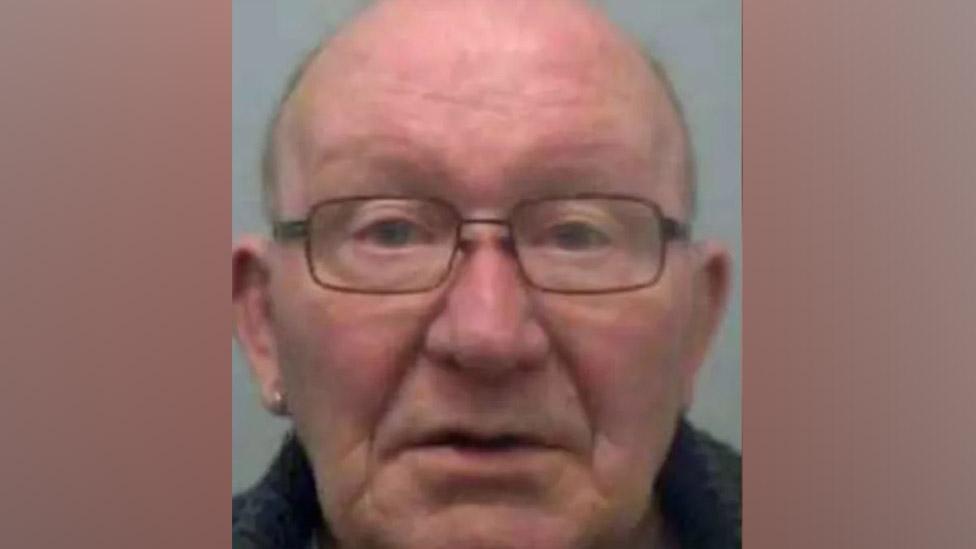Man jailed for life for murder in oldest double jeopardy case
- Published
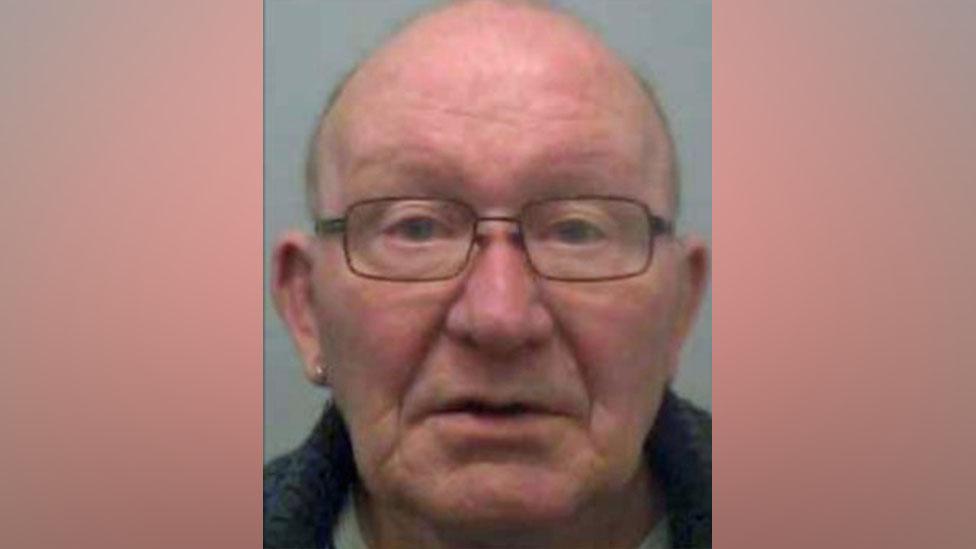
Dennis McGrory, who was 28 when he murdered Jacqui Montgomery, was given a minimum term of 25 years
A man has been jailed for life for raping and murdering a girl almost 50 years ago, in the oldest double jeopardy case in England and Wales.
Dennis McGrory, 75, was 28 when he sexually assaulted, stabbed and strangled 15-year-old Jacqui Montgomery in Islington, north London, in 1975.
He was tried on circumstantial evidence in 1976 but was cleared of murder.
McGrory was tried again after swabs from the teenager's body proved to be a one-in-a-billion DNA match to him.
Jacqui's body was found by her father, Robert Montgomery, in the living room of their home in Offord Road on 2 June 1975.
She had suffered fatal stab wounds and blunt-force trauma to her face, and had been strangled with the flex of an iron.
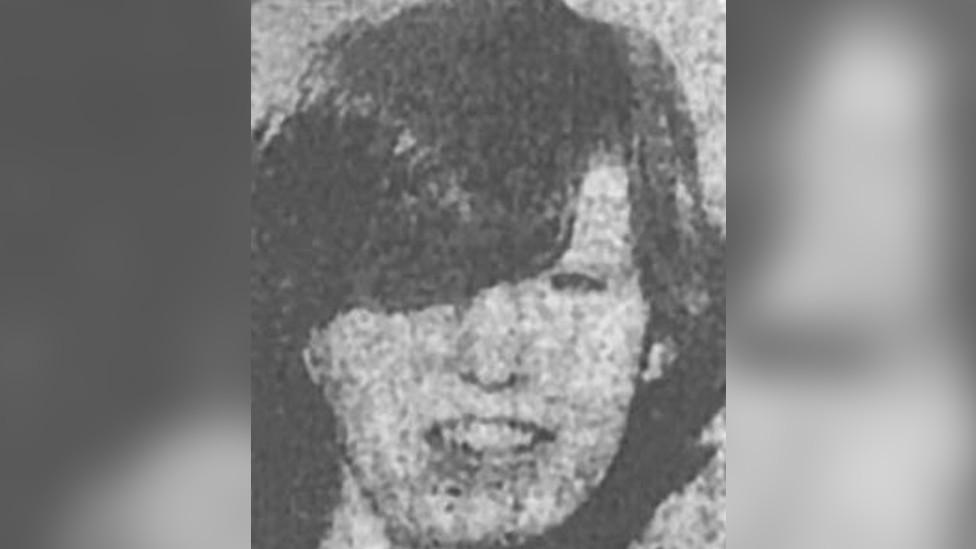
Jacqui Montgomery was killed by McGrory when he was "wild with rage", his trial heard
As a consequence of a change 20 years ago to the law regarding double jeopardy - the principle that no-one can be tried twice for the same crime - McGrory was brought before the courts again on the basis of the DNA evidence against him.
He was found guilty last month at the Old Bailey of the rape and murder of the teenager and sentenced earlier on Friday at Huntingdon Crown Court.
McGrory's trial had been halted in March when the defendant, from Milton Keynes in Buckinghamshire, fell ill.
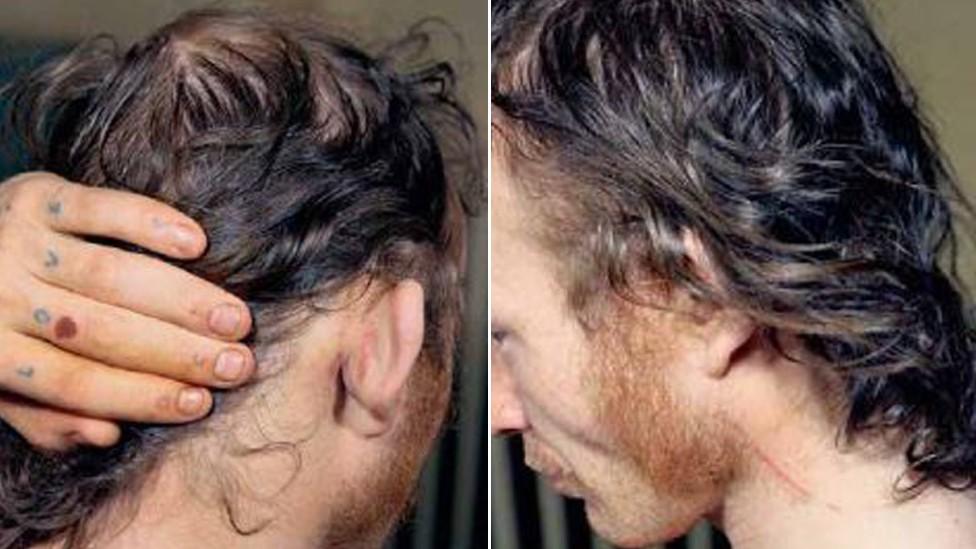
McGrory was found to have cuts and bruises behind his ears and on his hands the day after Jacqui's murder
During the trial, the court was told McGrory had been "wild with rage" when he killed the teenager as he tried to track down his ex-partner Josie Montgomery, who was the victim's aunt.
McGrory had threatened to rape Jacqui in the past and, on that night, he "made good" on those words, jurors were told.
During the attack he also ripped out a page of the teenager's diary with her aunt's address on it.
'Violent and sustained ordeal'
Sentencing McGrory to a minimum term of 25 years and 126 days, Mr Justice Bryan told the killer: "I have no doubt whatsoever that you intended to kill her in your brutal attack on her.
"You put Jacqui through a horrific, violent and sustained ordeal in her own home - a place where she was entitled to feel safe.
"In the decades that followed, you must have thought you had gotten away with your hideous crimes.
"How any man could inflict such sexual violence on a 15-year-old child that had done them no harm beggars belief."
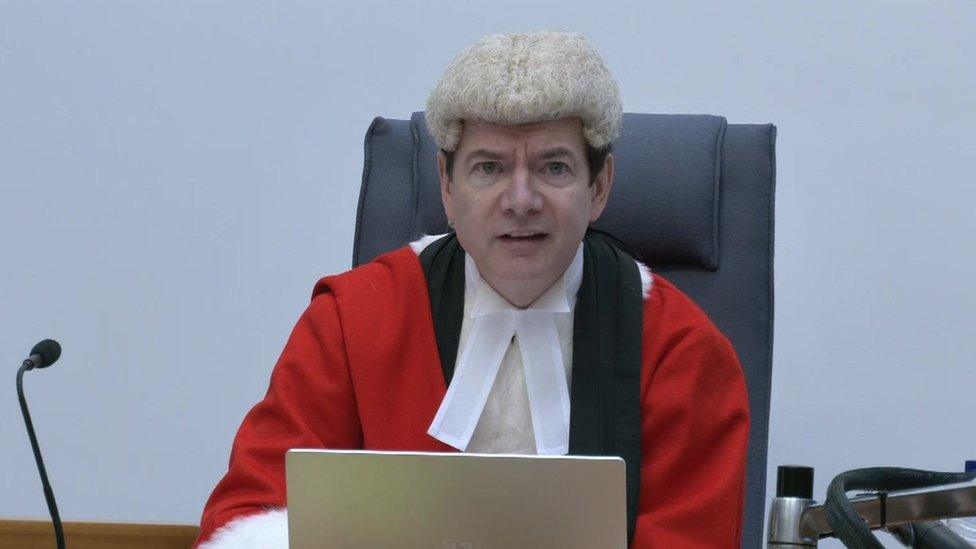
Mr Justice Bryan handed down McGrory's sentence in a rare televised hearing
Speaking outside court, Jacqui's sister Kathy Montgomery told reporters she was relieved.
"She suffered, that girl... she didn't deserve what she got, but he deserved what he got just now," she said.
Asked how she felt about McGrory being out of prison for decades, Ms Montgomery said: "Soul-destroying. Soul-destroying, knowing I could do nothing to get near him.
"We all knew he'd done it since day one."
'Crucial piece of evidence'
Speaking after sentencing, Det Con Jane Mascall from the specialist casework team at the Met Police said at the time of Jacqui's murder a swab was taken, which was retained.
She said that when the teenager's sister requested a case review, the swab was tested for DNA - something that was not possible in 1975.
Det Con Mascall said: "Forensic experts discovered a trace of McGrory's DNA on a swab taken from Jacqui, which meant we were also able to establish that he had raped her, something officers at the time could not prove.
"This crucial piece of evidence has allowed us to apprehend this violent man who thought he had got away with murder."
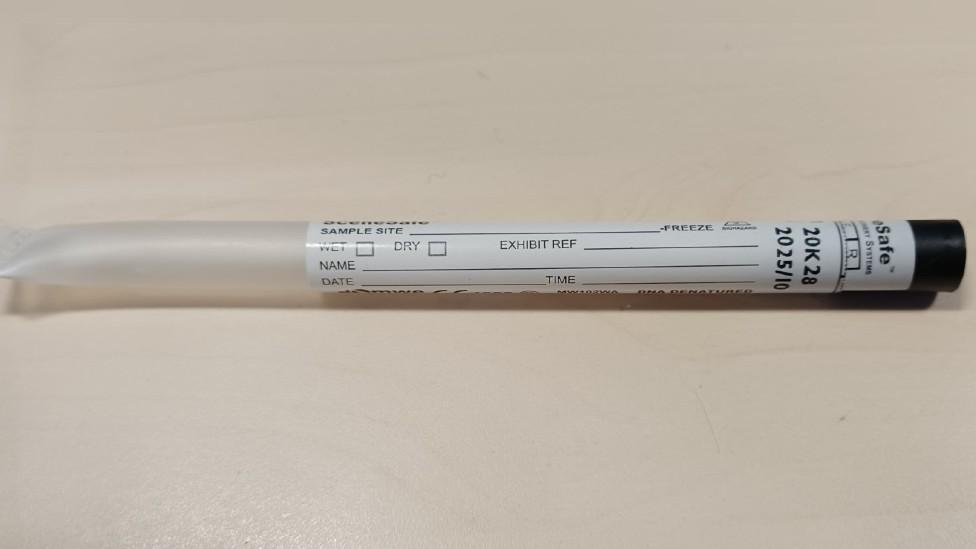
DNA swabs from Ms Montgomery's body made a one-in-a-billion match
Lee Shufflebottom, the forensic scientist whose work helped solve the case, said when reviewing the initial investigation he noticed there were "some original exhibits retained on the file, which was unusual".
He said the items "were preserved on the file within label packaging", enabling him and his colleagues to examine them and find the evidence.
"It was just foresight upon these scientists at the time in 1975 to actually preserve and retain those parts of the exhibits for future new technologies to come around, to be able to find that evidence that crucially they couldn't find in 1975," he added.

Follow BBC London on Facebook, external, Twitter , externaland Instagram, external. Send your story ideas to hellobbclondon@bbc.co.uk, external
Related topics
- Published19 December 2022
